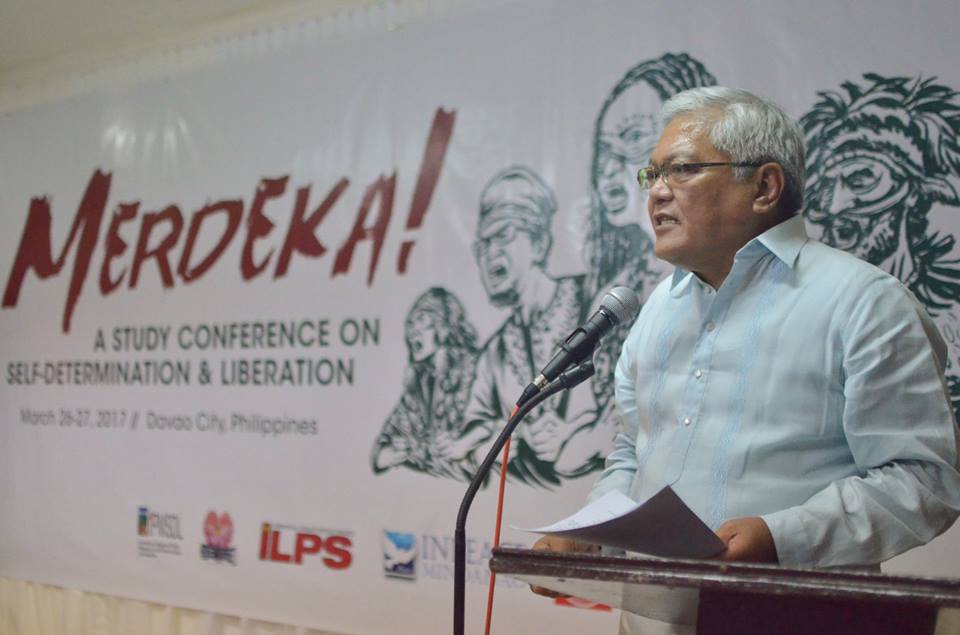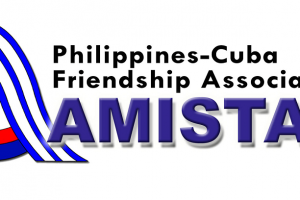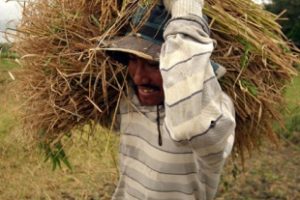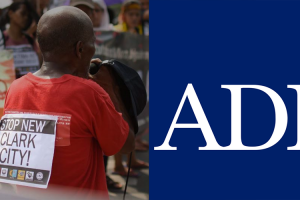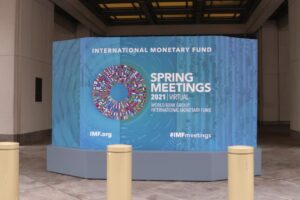Below is the keynote address of Antonio Tujan, Jr., IBON International Director, at "Merdeka! (Freedom!): A Study Conference on West Papua Self-determination and Liberation." The conference was held on March 26-27, 2016 in Davao City, Philippines. In his address, Antonio Tujan discusses the struggle of the West Papuan people, and the principle of self-determination as national liberation, allowing "a people to choose its own political status and to determine its own form of economic, cultural and social development." The Conference Declaration can be accessed here.
***
photos courtesy of Roy Anunciacion
[[{“type”:”media”,”view_mode”:”media_large”,”fid”:”1678″,”attributes”:{“alt”:””,”class”:”media-image”,”height”:”318″,”style”:”font-size: 12px; width: 350px; height: 232px; margin: 5px; float: right;”,”typeof”:”foaf:Image”,”width”:”480″}}]]
I would like to congratulate the IPMSDL and the ILPS global secretariat for organizing this study conference, which was the result also of a resolution of the ICC (International Coordinating Committee) in April 2016. I would also like to congratulate and acknowledge iNPEACE, KALUMARAN and Salugpongan for co-organizing and hosting this timely and urgent conference.
I believe that struggle of the West Papua people as well as that of the people of Indonesia are important for ILPS and IPMSDL to focus their attention and support. We also acknowledge the solidarity and support of ILPS Philippines, ILPS Australia and ILPS East Asia and Oceania global region, which is being reorganized.
This study conference seeks to look at the issue of self-determination and the question of national subjugation or annexation of West Papua and why the struggle for secession and liberation is urgent and fundamental. And therefore deserves the solidarity, cooperation and support, alliance and coordination by all peoples organizations around the world, and especially that from the peoples movement of Indonesia.
Essentially, the right to self-determination is the right of people to determine their own destiny. In particular, the principle allows a people to choose its own political status and to determine its own form of economic, cultural and social development[1].
Self-determination is among the democratic rights that people enjoy and is among the civil and political rights enshrined in The International Covenants on Civil and Political Rights to which governments have signed and ratified. Democratic rights of the people should principally be understood and applied as collective rights of people such as the right to development and the rights of self-determination as well as the enjoyment of the whole family of rights as nations and countries and among social groups and classes and also expressed inrights of individuals.
As a conference in the Hague of Unrepresented Peoples Organization reports:
“Exercise of the right of self-determination can result in a variety of different outcomes ranging from political independence through to full integration within a state. The importance lies in the right of choice, so that the outcome of a people's choice should not affect the existence of the right to make a choice. In practice, however, the possible outcome of an exercise of self-determination will often determine the attitude of governments towards the actual claim by a people or nation. Thus, while claims to cultural autonomy may be more readily recognized by states, claims to independence are more likely to be rejected by them. Nevertheless, the right to self-determination is recognized in international law as a right of process (not of outcome) belonging to peoples and not to states or governments.
***
“The more oppressed a people is by a ruling group of a different nationality, the more that people will seek separation from that group as a pre-requisite for the enjoyment of fundamental rights and freedoms. The better the relations between the various peoples populating a state, the more likely that distinct peoples will see benefits of association with the others in a framework that provides for their basic group needs.”
A Policy of Forcible Integration or Assimilation and National Oppression
The government of Republic of Indonesia subverted the UN referendum process towards the independence of West Papua after Dutch colonialism, thus Indonesia does not have an historical title to those occupied territories despite the desire of comprador-landlord class who inherited a newly independent Indonesia. They cannot invoke the concept of territorial integrity to justify its occupation of the territories of other peoples nor can the occupation be based on the consent of the Indigenous Peoples in those territories.
In the assimilation and annexation of West Papua into Indonesia, a policy of national oppression was instituted whereby politico-military systems of the Indonesian state were instituted and the whole territory and people were subjected to the dominant social system of Indonesia. Furthermore, West Papua was turned into a militarized zone, not only in response to the resistance of the West Papua people but also to assure the plunder of natural resources by multinationals and their comprador partners.
By this annexation and assimilation, the West Papuan people became ‘second-class’ citizens of a country not historically their own They suffer discrimination and inequalities within the system, at the same time that they are prevented from pursuing freely their own national existence and development outside the Indonesian system.
In effect, the West Papuan people remain conquered after the Dutch and under the Indonesian Republic they are denied of ancestral lands and resources, and they are denied democratic self-rule of any form whatsoever from the local to the national level. The Indonesian state’s policy of militarization and migration continue with ethnocidal effects while its socio-economic impositions destroy the West Papua society in the name of "national development" of Indonesia. The dominant superstructure of the Indonesian social system actively disables traditional or customary socio-political processes, commercializes indigenous cultures and perpetuates discrimination against Indigenous Peoples in various ways.
Liberation from National Oppression as the Expression of the Right to Self-Determination
[[{“type”:”media”,”view_mode”:”media_large”,”fid”:”1680″,”attributes”:{“alt”:””,”class”:”media-image”,”height”:”318″,”style”:”font-size: 12px; width: 350px; height: 232px; margin: 5px; float: right;”,”typeof”:”foaf:Image”,”width”:”480″}}]]
It is axiomatic that the ultimate expression and assertion of the right of self-determination from an oppressive state or aggressor is to fight for liberation, fight for independence and secession by a nation.
For Lenin, the key was for the Great Russian working class and the revolutionary party to make clear their unequivocal opposition to every manifestation of Great Russian oppression, privilege and racism. The party had to be the leader in fighting for equality of language rights, equality of education and of cultural rights. He was confident that the unity would come about when the oppressed peoples, especially the workers and peasants, were confident that the Bolsheviks were committed to self-determination and equality.
To make it completely clear that the revolutionary workers’ party was committed to ending national oppression, it must also support the right of the oppressed nation to separate to form its own state. That did not mean that socialists advocate for a separate state in every instance; in some cases, socialists might argue the inadvisability of an independent state or the benefits of union. But they must be uncompromising in their rejection of bourgeois “unity” as a cover for continued national oppression and subjugation by “great” nations.
Unity, if there was to be unity, must be on a completely voluntary basis, stated Lenin. Its most important prerequisite is the commitment of party members from the oppressor nationality to fight energetically against national oppression and racism.
At the same time, he called for party members from the oppressed nationalities to fight for working class internationalism. He warned against any concessions to bourgeois nationalism, which “joins the proletarians and bourgeoisie of one nation and keeps the proletarians of different nations apart.”[2]
With the 1960 UN General Assembly adoption of the Declaration on the Granting of Independence to Colonial Peoples, GA Res. 1514, and the Declaration Concerning the Implementation of the Right to Self-determination, GA Res. 1541 the principle was elevated to the position of an unconditional right.
The Declaration on the Granting of Independence (Res. 1514) marks a significant shift in the law of self-determination. For the first time, in the case of colonial entities, it stressed that "inadequacy of political, economic, social or educational preparedness should never serve as a pretext for delaying independence" including cessation of “all armed actions or repressive measures against dependent peoples.”
The Declaration Concerning the Implementation of the Right to Self-Determination (Res. 1541) outlined the three methods by which the self-determination of non self-governing territories could be achieved. These were independence, free association and integration.
In 1966, the UN GA adopted and opened for signature, ratification, and accession, the International Covenants (International Covenant on Civil and Political Rights and International Covenant on Economic, Social and Cultural Rights).
The Common Articles 1(1) state, that "all peoples have the right to self- determination xxx." Articles 1(2) note that self-determination shall include a right to dispose of wealth and resources (economic self-determination), while Articles 1(3) oblige state parties to the Covenants "to promote the realization of the right to self-determination". The International Covenants do not appear to limit the right to self-determination to peoples classified as non self-governing by the United Nations. The implication is that the right belongs to "all peoples" and must be respected by all states, not only those who may be in a trust relationship with a dependent people.
The end of the Cold War and collapse of the Soviet Union heralded an era of US imperialist triumphalism, neoliberalism and imperialist globalization that is often referred to the ‘end of history,’ as Fukuyama calls it. It meant the demise of the Non-Aligned Movement and its struggle against neo-colonialism, the promotion of reactionary puppet regimes and their defense in the name of the so-called ‘rule of law’, the demonization of and attack on liberation movements as terrorists, the attack on states asserting their independence against imperialism as ‘rogue’.
The imperialist project that we now call‘neoliberal globalization’ coupled with militarism and war was meant to re-conquer countries in a new wave of denationalization and neocolonialism to stave off intensifying global crisis. Instead globalization failed to address the crisis of overproduction and gave way to financialization of the global economy that intensified the deterioration and crisis of monopoly capital and leads to its depressionary spiral.
This intense global crisis is also reflected in increasing neo-fascist political forces, in inter-imperialist conflicts and in wars of aggression against movements and states fighting imperialism, but including against terrorists what were abetted by US imperialism like the Al Qaeda and the Daesh. This period of conflict and instability created by the economic crisis and the multipolar divisions between the West and emerging imperialist powers opens the way for opportunities to advance liberation struggles, including political and diplomatic processes favorable for liberation movements to win concessions and even become victorious.
Process for Asserting the Right to Self-Determination
In the most general terms, the right to self-determination means the right of every historically constituted people to determine their destiny and development based on their own wishes, free from forcible interference by other peoples.[3] It is the sovereign right of people to freely choose and develop their own socio- economic, political, and cultural systems.
In a specifically political sense, the right to self- determination is the right of a people to constitute itself as an independent state or as a separate political entity if it so decides, enjoying the same rights as all other nation-states, or otherwise, to freely determine its mode of association with an existing state wherein it enjoys the same rights as the other constituent peoples of that state. In this sense, the right to self-determination covers a wide range of options that a people can choose from.
The first option is secession, or the breaking away of people from a state to form an independent state of their own– as a collective assertion of full nationhood.
The second option is federation, or the act by which two or more previously independent states form a common, federal government while continuing to exercise many of their prerogatives as constituent states.
The third option is regional autonomy – a political arrangement within a democratic republic, under which specific territories of indigenous or minority peoples can exercise self-rule to a higher degree than is exercised by other regular territories of the nation.
The struggles of the West Papuan people can cover the whole range of options and possibilities for struggles to achieve independence – from militant struggle of the masses of West Papuan including the rest of the masses in their territory up to diplomatic initiatives to renew the process of referendum and gain international recognition of their struggle for independence. It is important to emphasize the primacy of militant struggle, which becomes the basis by which international solidarity and diplomatic initiatives can prosper.
While it is obvious that the peoples movement of Indonesia recognizes the struggle of the West Papua people as part of their own, the struggle of the people of West Papua for national liberation also should recognize the struggle of the Indonesian people for national liberation and democracy against US imperialism and the puppet state of compradors and landlord classes which is their common enemy. Further, that struggle for national liberation should also take into account the efforts of the ruling classes of Indonesia to impose its social system into the population of West Papua and consider the democratic demands of the population, both Indigenous Peoples and Indonesian settler, against the imperialist corporations, the comprador big bourgeoisie and landlords, and their military surrogates.
This means that there should be synergy, not just alliance and close cooperation, between both the West Papuan movements for liberation and the Indonesian movements struggling for national democracy. In this context, the recognition of the Indonesia movements for the struggle for self-determination for the West Papuan people should include the recognition of the right to secede from an Indonesian republic that tramples the rights of both the Indonesian and West Papuan people.
International solidarity has an important role to support the campaign of the liberation of the West Papua people. This solidarity is also the responsibility of the people’s movements of Indonesia as comrades in arms of the West Papuan people. This solidarity campaign can take many forms and levels – targeted at the Indonesian government, the ASEAN, the Pacific countries, the UN and other intergovernmental entities as well as international organizations. It can take various forms and actions including social media. This should also be the subject of the planning for the second day.
Philippines, Indonesia and the other islands that extend from the Asian mainland out to the South Pacific share a common history from time immemorial. We have suffered from colonialism and imperialism, and the issues and the people’s misery continue to this day. Thus we feel a strong solidarity with the people of West Papua and a responsibility to support and engage in this struggle.
Long Live the People and Liberation of West Papua!
Long Live International Solidarity!
[1][SELF-DETERMINATION IN RELATION TO INDIVIDUAL HUMAN RIGHTS, DEMOCRACY AND THE PROTECTION OF THE ENVIRONMENT, Conference Report, Unrepresented Nations and Peoples Organization International Conference held in The Hague, The Netherlands January 22-23, 1993]
[2] Draft program for the fourth congress of social-democrats of the Latvian area,” May 1913
[3] [SELF-DETERMINATION IN RELATION TO INDIVIDUAL HUMAN RIGHTS, DEMOCRACY AND THE PROTECTION OF THE ENVIRONMENT, Conference Report, Unrepresented Nations and Peoples Organization International Conference held in The Hague, The Netherlands January 22-23, 1993]
